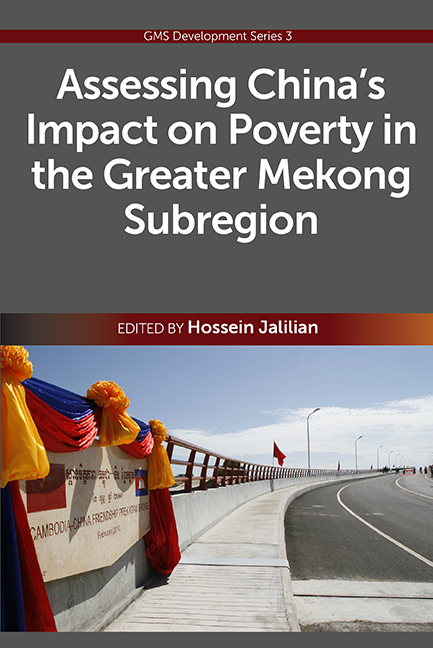4 - China's Capital Outflows and the GMS-4
from PART II - CHINA AND THE GMS-4
Published online by Cambridge University Press: 21 October 2015
Summary
The research theme of this chapter is devoted to the influence of China's economic growth on its investment outflow and overseas development assistance (ODA) to the GMS-4 countries, namely Thailand, Vietnam, Laos and Cambodia. In this chapter we deconstruct China's foreign direct investment (FDI) outflow and ODA with a view to establishing past and current trends, and identifying possible future trends. Principally, China's FDI and ODA are looked at from the perspective of China and those of the GMS-4.
The first part of the chapter deals with the issues that relate to FDI outflow from China to the GMS-4, beginning by identifying where China's FDI outflow goes to and how China's FDI flow to the GMS has varied over space and time in terms of total volume, and sectors and enterprises invested in. The second section looks at the agreements that have facilitated this movement of FDI and discusses how these may influence future FDI outflows. The third section provides an analysis of the sources, their geographical distribution and the motivations underlying China's FDI outflows. Finally, the conclusion provides a summary of the key points and possible future policy directions.
The second part focuses on issues concerning China's ODA to the GMS-4. The first section provides a brief background to ODA from China and looks at a selection of literature on this topic. The second section considers motives and goals of China's development assistance to the GMS countries. The third section looks at the main forms of China's ODA to GMS countries while section four discusses the issues that relate to the future prospects for China's foreign aid policy towards GMS countries. Section five looks at the organizational and institutional arrangement of China's ODA. Section six concludes the discussion and provides some policy recommendations.
FDI to the GMS-4
Background
Current research on the issue of China's outward investment in the GMS still constitutes a piecemeal literature and lacks a systematic framework or much in-depth empirical or theoretical research and analysis. However, it can be said that countries in the GMS have outstanding advantages in attracting China's outward capital.
- Type
- Chapter
- Information
- Publisher: ISEAS–Yusof Ishak InstitutePrint publication year: 2013

